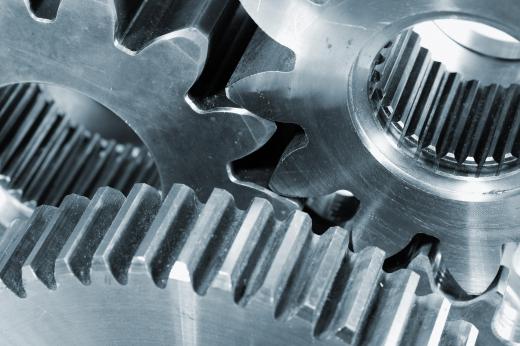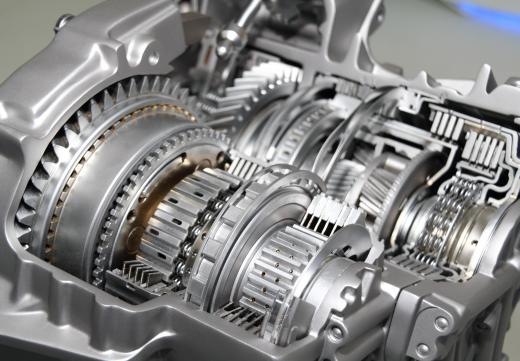Gear grinding is the name of a specific gear creation technique. Grinding involves the removal of unwanted materials through an abrasion process. Grinding is typically the last step in the gear creation process; other techniques have removed the majority of the material first. There are several methods of grinding, but not all of them are used for the creation of gears. In addition to the gear creation meaning, gear grinding is the common term for incorrectly shifting a manual transmission vehicle.
Gears are made using a variety of methods. In general, rough cuts are made into a metal piece that creates the general shape of the gear. The gear then moves on to a more precise machine that removes more material; this process may be repeated several times. Eventually, the gear enters its final step, which is almost always a grinding machine.

Grinders work via abrasion. They rub a rough surface against a work piece at such high speeds that it literally scrapes unwanted material away from the item. Since the grinder is spinning so fast, the material is removed very quickly. This allows a grinder to take off a very small amount without taking any unwanted material with it.
In general, grinding systems work in one of two ways. Either the work piece is kept still and the grinding surface moves, or the surface is still and the piece moves. In gear grinding, it is typically the first. Most gear grinding machines hold the gear still while a work head moves around the gear. This head contains a high-precision abrasive platter that grinds the last bits of metal from the gear.

The final polish on the gear is generally done in a grinder as well. The same machine that removes material can also polish and smooth the finalized gear. Instead of a grinding wheel, the machine employs a polishing wheel; the process is the same as grinding, except no material is removed. The final grinding and polishing activities are usually the last two steps in gear manufacturing.

Gear grinding in a car is generally caused by a mistake in timing between the clutch and shifter. When the driver pushes the clutch, he disengages the car’s gears. At that time, there are no direct connections between the engine and the car’s drive system. The driver than shifts the car into the new gear, which will change the physical gear used when the driver releases the clutch. When the driver releases, the gears reengage, and the car continues in a different gear.
A mistake in this sequence will cause the car’s gears to make a loud grinding noise. The most common mistake is releasing the clutch when the car isn’t fully in the new gear. When the car attempts to grab onto the gear, it is between two different gears. This causes the gears to rub against one another, but not engage, so they make the common grinding sound.
